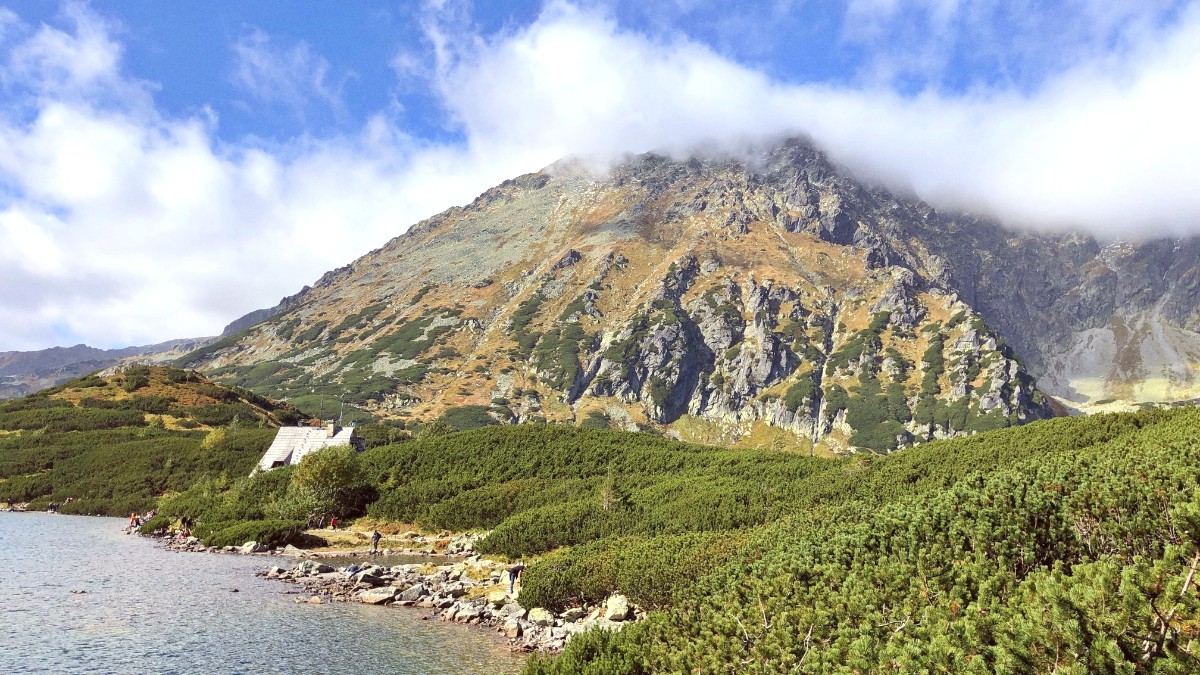
Malopolska, Poland
Tatra National Park (Tatrzański Park Narodowy - TPN) is a strictly protected national park and an UNESCO Biosphere Reserve. This designation emphasizes the preservation of its unique alpine ecosystems. Your entry fee directly supports TPN's conservation initiatives, including reforestation and trail maintenance. Always adhere to marked trails, avoid disturbing wildlife, and refrain from picking plants.
Recycling bins for paper, plastic, and glass are available in towns and at some trailheads. Familiarize yourself with local sorting practices. Dispose of all waste properly in designated bins. Practice "Leave No Trace" principles within the national park by packing out everything you pack in, including food scraps and organic waste. Minimize packaging when preparing for hikes.
To address air travel's carbon emissions, consider purchasing carbon offsets for flights. Many airlines present this option, or you can use independent offset providers like Terrapass. Where suitable, choose public transport (buses, trains) over private cars. In accommodations, be mindful of water usage. Refill a reusable water bottle from tap water (generally safe in Zakopane) instead of purchasing single-use plastic bottles.
Protecting Zakopane's pristine natural environment, especially the Tatra Mountains, represents a shared responsibility.
Visitors must stay on marked trails, avoid disturbing wildlife, and refrain from picking plants or flowers. Feeding wild animals is strictly prohibited. These rules protect fragile habitats and ensure visitor safety.
Look for accommodations with eco-certifications or those that explicitly promote sustainable practices. Inquire about their environmental policies.
Reduce your carbon footprint by opting for collective transport.
The Tatra National Park is home to unique flora and fauna, some of which are endangered. Your actions directly contribute to their survival.
When purchasing outdoor equipment, opt for brands committed to environmental responsibility and ethical manufacturing practices.
PatagoniaMinimize waste by carrying reusable water bottles, coffee cups, and shopping bags.
Package Free ShopThe Highlanders of Zakopane are proud of their unique culture. Your interest in their traditions helps keep them alive.
Engaging with locals can be a highlight of your trip. Politeness and an open mind open doors to genuine connections.
While general photography is welcome, be mindful of individuals' privacy and dignity.
Churches and chapels are sacred spaces. Your conduct should mirror the respect given by locals.
Be aware of animal welfare concerns, specifically regarding horse-drawn carriages to Morskie Oko. While traditional, some concerns about the horses' treatment have been voiced. Research operators if concerned, or opt to walk instead. Avoid giving money to beggars or children on the street. Instead, support reputable local charities or non-governmental organizations.
Direct financial contributions to beggars are not recommended; support structured aid.
Seek out established local charities that address community needs.
Conscious decisions regarding animal welfare and charitable giving contribute to positive community well-being.
Your travel choices hold a direct, positive economic connection for the local community.
Support local guesthouses (kwatery prywatne), family-run restaurants (karczmas), and local guides. This practice helps ensure your money directly benefits local families and businesses, rather than large international chains.
Look for products clearly labeled as "Made in Podhale" or "Handmade by local artisans."
Your choice to engage with local businesses directly translates into local employment and income, strengthening the community's economic fabric.
While bargaining is common in some cultures, in Zakopane, prices are mostly fixed. Engage in polite and respectful bargaining only in open-air markets or with street vendors.
Purchasing locally made products not only gives you unique souvenirs but also directly backs the community and its artisans, fostering the continuation of traditional skills.
Intricate designs in furniture, decorative objects, and figurines.
religious icons and folk scenes on glass.
Detailed patterns on traditional costumes and home linens.
Concerns surrounding the welfare of horses used for carriages to Morskie Oko have been noted. Research operators if this is a concern, or consider walking the route instead.
By making conscious choices, your visit can positively influence Zakopane's economy and cultural heritage, building a rewarding experience for both you and the community.